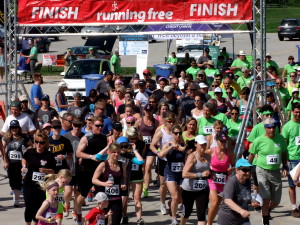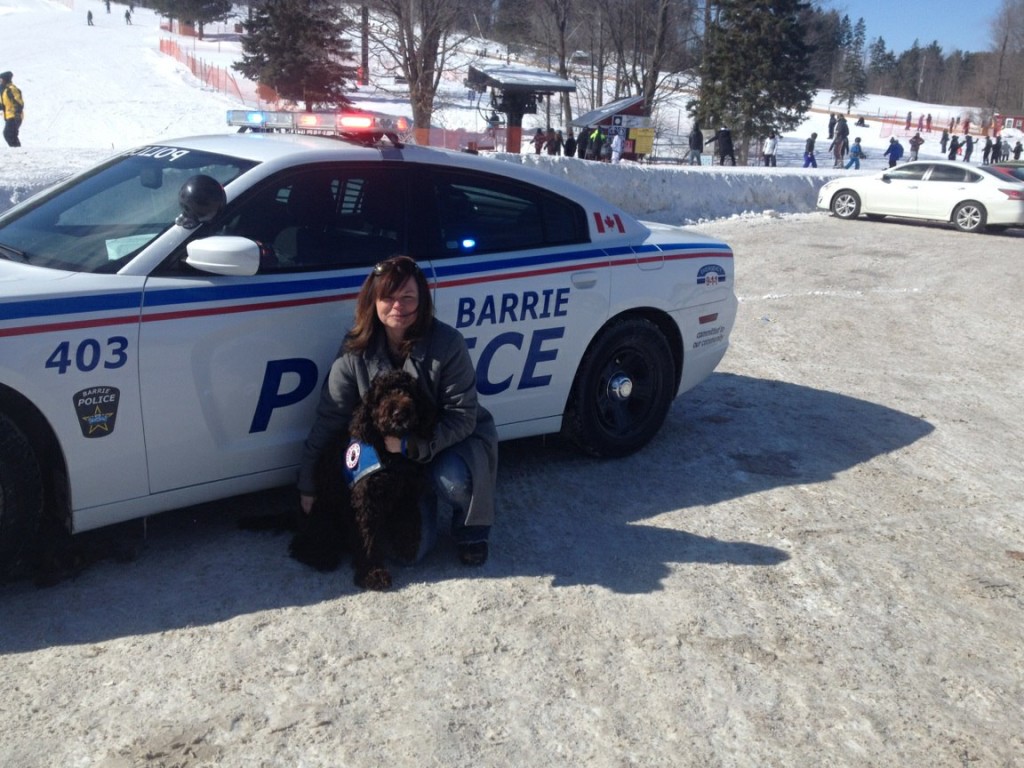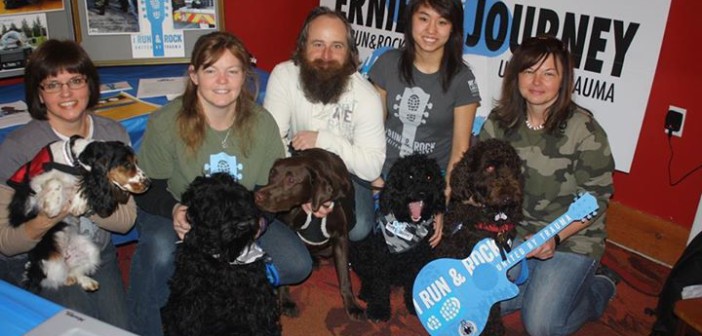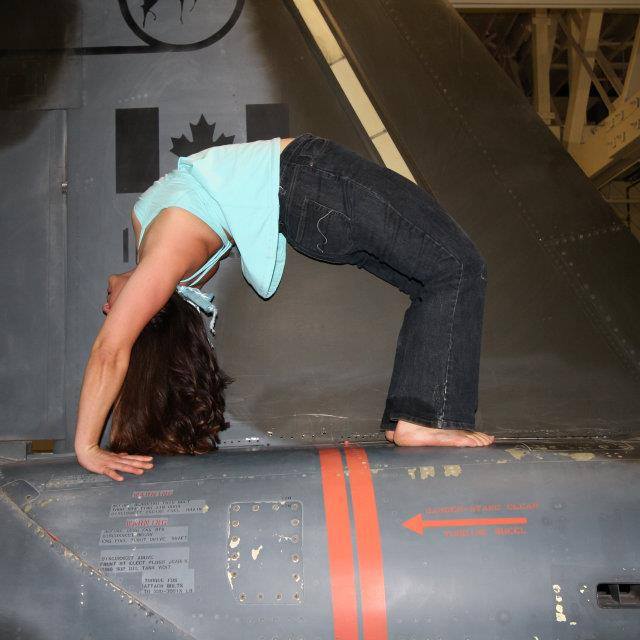Since April 2014 twenty-seven first responders inclusive of police officers, correctional workers, firefighters and paramedics, have killed themselves. Of those twenty-seven, nineteen lived in Ontario. Since January 2015 there have been 4 first responder suicides. For the year 2014, 19 Canadian Forces military personal died by suicide.
*****
The young couple tried for years and were unsuccessful in their attempts to become pregnant. But surely enough, one day it happened. The year was 2001. Nicole Taylor and her husband, Shawn, were joyfully anticipating the birth of their son. Tragically, late into her pregnancy, Nicole miscarried. It was only three weeks later, when these grieving parents, would be affected by a sequence of events triggered by the horrors of September 9th, 2001.
Shawn was a soldier with the Canadian Forces. Nicole tried to find comfort in the fact that they were securely stationed far away in North Bay, Ontario. Six months later, with Nicole now settled into a deep depression, the military relocated her husband to Victoria, B.C. The couple picked up and headed out west. Shortly after arrival, Shawn received his papers to deploy to the Middle East. Three weeks before he left, his father died.
“My husband is a phenomenal soldier. He can really compartmentalize things and really has that ‘suck it up’ mentality,” explained Nicole.
She pleaded with Shawn not to go, to speak with someone at the military base about the death of his father and all this while still freshly grieving the loss of their son. But being the soldier he was, Shawn carried on with his overseas preparations. And so the couple was separated, each to suffer alone the heartbreak of losing a son and losing a father; Nicole by herself in a new city and Shawn in the middle of a foreign country thick with violence.
As she sat there on her couch, staring at a wall one afternoon with her ‘rock bottom depression’, Nicole decided that she didn’t want to become another suicide statistic. With nothing left to lose she decided to give yoga a whirl.
“I don’t even know how it entered my head but I decided to go to yoga class. It wasn’t even mainstream back then. I went to this yoga studio in Victoria and instantly it felt like this weight had been lifted off my chest. It was a really freeing feeling. It felt like there was a crane and it was lifting stuff off of me. And I thought ‘wow this shit really works’. So that was how I started my path of healing.”
While Nicole was learning how to manage her depression her husband was exposed to new trauma over and over again a continent away.
“My husband returned from the Middle East and I knew that he was going to have a lot of stuff to deal with. He definitely was a very changed man. At that time PTSD wasn’t even on the radar for military guys- it was still 2003. He was very quiet by nature but he was even more quiet now. He was very withdrawn, he didn’t care about anything anymore. He was trying to get back into some kind of ‘normal life’ but it’s tough when you’ve been away for that long and you’ve had all this stuff bottled up.”
No sooner had Shawn returned home then he was ordered back to Ontario for three months of training exercise. Once again Nicole begged her husband not to go but rather stay in B.C. to seek some sort of help. But Shawn would leave once again, answering the call of duty. Three days after leaving Shawn called home.
“He called home in the evening. And I knew something had drastically changed because he was even more quiet than he normally was. I told him that he needed to talk to one of his supervisors and that he needed to come home and we needed to get him help. And he said ‘no I’m fine’. Everything is always fine. When I got off the phone I figured he was either on the point of suicide or he was going to harm other people.”
Nicole, who is a nurse, was torn in two directions.
“There was an internal dilemma with the nurse hat coming on and having to do the right thing and call and get him help. And then the wife side of me felt that I was betraying him by turning him in and ratting him out. It was a struggle. I knew the ramifications – if I turned him in they would probably boot him out of the army and our marriage would be over. And God knows what else. So after a little while I picked up the phone and I called the Padre on the base in Victoria. I said that my husbanded needed help and that I was worried that he was going to do something. He was flown back home to Victoria within 24 hours. He walked in the door and he put his bag down and he just started crying. We didn’t even have to say any words.”
Over the past ten years 171 Canadian Armed Forces members committed suicide. Of that number 10 were regular force females, 32 were reserve force males and 129 were regular force males. There weren’t any suicides among reserve force females during this reporting period. In the five year period between 2009 and 2014, 68 members of regular force males out of 289,866 committed suicide resulting in a suicide rate among regular force males at a rate of 23 per 100, 000 population. According to the World Health Organization, the suicide rate per Canadians is 15 per 100, 000 indicating that suicide rates among just regular force males is 35% greater than the general population.
The next challenge would be finding help for Shawn – and they took that hurdle together. Though there was support through the military, Nicole and Shawn opted for civilian treatment. PTSD will always be a part of Shawn’s life but today he has access to supportive resources and has acquired tools to deal with his symptoms of PTSD –just as Nicole has with her symptoms of depression and anxiety.
Of PTSD among first responders Nicole commented, “The interesting thing about military compared to policing is that some police come forward and they do have accommodated positions. So if you are able to come back to work they find you something but with the military you’re out. And that’s why most won’t come forward- that’s where the problems start.”
Police officers fall under the current definition of first responders as do firefighters, paramedics and correctional workers. Currently there is a push to pass Bill -2 through the Ontario legislature. If Bill -2 passes the presumptive legislation would mean that it would be presumed that front-line responders suffering from PTSD acquired the illness on the job and are therefore, eligible for WSIB benefits.
At present nurses, doctors and 9-1-1 operators are not recognized as First responders and this is something that concerns Nicole. Nicole’s first alarming experience of depression was precipitated by the loss of her son but as an operating room nurse, Nicole has also experienced heightened anxiety triggered by the job.
“I’ve seen some really horrific cases on the job that have affected me as an operating room nurse. People forget about nurses quite often and 9-1-1 operators also. Those two professions are always behind closed doors so people don’t even think of it. So for 9-1-1 operators the things that they hear on the phone are just horrible. In the operating room I have some triggers. Taking out a bullet and the clinking of it hitting the basin- when I hear clinking metal that brings me right back to the OR. And it brings me right back to a terrible case that I had. When I check people in for surgery, I have to look at arm bands and identify them by their birth date, and if it’s the same as my sons’- that triggers me. So all those things start adding up and if we don’t have resources set up to help us, we get into trouble.”
Nicole notes that even before the definition of ‘first responder’ is expanded to become more inclusive that there needs to be a recognition among nurses, doctors and emergency operators themselves, that they are also are a part of the first responder community.
“It’s kind of a funny thing because nurses don’t consider themselves as first responders. We’ve heard the definition of first responders as being police, fire and ambulance for such a long time but it is starting to change.
Among her colleagues Nicole has witnessed depression, PTSD, anxiety, compassion fatigue, addiction and suicide. Though the admission of mental injuries often carries the burden of society’s stigma Nicole has courageously revealed her own human frailties for the sake of advocacy and education. And her employer, the Southlake Regional Health Centre in Newmarket, has been entirely supportive.
“The CEO of the hospital has been really great in helping me get the word out about PTSD and first responders. A lot of nurses and doctors are affected by depression and addiction but we never talk about it. I’m at the point in my career where I’m vocal about it. It’s opened up a huge dialogue among my colleagues. I want the younger nurses to know that they don’t have to go through a career of letting stuff build up and that there are resources out there.”
As Nicole’s awareness of her colleagues struggles increased so did her compassion to help others just as she helped herself over a decade ago. She became a yoga instructor and offered classes especially for first responders. It was the year 2013 when one of her yoga students, an OPP officer, approached her with a causal comment about the need to do more for first responders that suffered from PTSD.
 Without skipping a beat Nicole said, “Let’s have a five kilometer run.” And then she thought to herself, “How hard could that be?” As Nicole began laying out plans for the run, a tactical officer assisting with the event suggested throwing a rock concert to draw more people to the event and Nicole thought to herself again, “Oh my gosh. I know nothing about the rock world. I can’t even operate my iPhone!”
Without skipping a beat Nicole said, “Let’s have a five kilometer run.” And then she thought to herself, “How hard could that be?” As Nicole began laying out plans for the run, a tactical officer assisting with the event suggested throwing a rock concert to draw more people to the event and Nicole thought to herself again, “Oh my gosh. I know nothing about the rock world. I can’t even operate my iPhone!”
But Nicole’s hairdresser did know someone who knew about music industry. Enter Sam Reid, Glass Tiger drummer.
“Within in twenty-four hours Sam contacted me and he asked me what I needed and I told him a rock show and he said ‘done’.” And viola- the first annual I Run And Rock event was created.
 Nicole recalled of that first event, “The premise was to get as many people as possible to come out for the run and concert so we would have a greater reach with the educational component of the day. Since our first run so many great things have come out of all of this. We’ve had many people who aren’t first responders tell us that they’ve really had their eyes open. And of course, so many of the first responders have reached out to share with us how knowing that there were people out there that really cared about what they were going through made the difference between life and death.”
Nicole recalled of that first event, “The premise was to get as many people as possible to come out for the run and concert so we would have a greater reach with the educational component of the day. Since our first run so many great things have come out of all of this. We’ve had many people who aren’t first responders tell us that they’ve really had their eyes open. And of course, so many of the first responders have reached out to share with us how knowing that there were people out there that really cared about what they were going through made the difference between life and death.”
After a few I Run and Rock events Nicole and other organizers began to notice that the educational component was working. More people were coming to understand what PTSD was and how the condition could affect first responders. What they also noticed was that there was a deficit of resources available to individuals with a condition of PTSD.
“There’s a lot of talking about it. I’ve been to a lot of conferences about PTSD and at the end of it people are looking around and thinking ‘now what’.”

Drew Dunning, Canadian Forces and Toronto Police Service, with his service dog- a chocolate lab named Marshall. Marshall is named after OPP Sgt. Doug Marshall.
The ‘now what’ evolved into a service dog program. By donations, and money raised through I Run and Rock, Nicole co-founded, under the formal name- ‘United in Trauma’, Ernie’s Journey. Each dog is donated to first responders, soldiers and veterans affected with post-traumatic stress disorder. The service dog is trained to mitigate the effects of PTSD. Every dog that is donated is named in honour of a first responder that lost their life to suicide.
“The first pup was Marshal, a chocolate lab. Now we are using Barbet dogs for several reasons,” explained Nicole. “Barbet’s are hypoallergenic which is great in the case where you might be around people who have allergies- or have one yourself. The Barbets are highly intelligent and are very calming. They have a keen instinct for being calm. And also they’re very great looking dogs. They’re a very friendly looking dog- they kind of look like a great big Muppet.”
Service dogs that will be aiding first responders undergo very specific training.
“When a service dog is being trained we always have to think about the triggers that someone might have. So with a cop or a soldier when they go into a restaurant they always have their back against a wall or are facing the doorway. The Barbet’s are trained to watch the entrance at all times and that means that person doesn’t need to be as hyper vigilant.”
Ernie’s Journey Barbet’s are also trained to apply deep pressure therapy. Deep pressure therapy is, in its simplest terms, a good secure cuddle. The dogs are trained to “minimize the severity and duration of anxiety or panic attacks. This involves the dog using his weight, to apply pressure to the handler’s body, in places that typically elicit a calming effect.”
So who is Ernie? Why Ernie is Nicole’s service dog! Ernie provides support and relief to Nicole during times of anxiety or depression.
This year Ernie’s Journey is hoping to give out 10 Barbet service dogs to first responders this year. Being matched with a service dog require a matching procedure.
“We need to determine if people are a good fit with the service dog program. That requires a series of dialogue and investigation. We also receive referrals from people who provide counselling for first responders with PTSD.”
United in Trauma isn’t losing any steam and neither is Nicole. Under Ernie’s Journey program, Nicole wrote and is ready to publish two children’s books that explain why mom or dad seem so sad and the healing role of the service dog. Other cities in Canada have adapted I Run and Rock events in their own community and United in Trauma has developed global networks. Looking forward Nicole would love to see I Run and I Rock become a national event as well as engage more 9-1-1 operators and attract greater sponsorship from corporate Canada.
And how would Nicole summarize her past fifteen years of life experience?
“In all of this, if it’s one person that’s been saved then it has all been worth it.”

Nicole and Ernie at United in Trauma’s ‘I Ski for PTSD 2015’. On March 8th, 2015 Nicole and Ernie will be celebrating their first year of friendship.
*****
Check out I Run and Rock for more information or email Nicole at irunandrock@gmail.com
Do you need to talk to someone?
The Canadian Critical Incident Stress Foundation http://www.ccisf.info/
Tema Conter Memorial Trust, Peer to Peer Support and Family Assistance: 1-888-288-8036
Connex Ontario Mental Health Helpline: 1-866-531-2600
Algoma District, Central Access: 705.759.5989 or 855.366.1466





5 Comments
thank you for sharing your story Nicole! I’m know this will reach someone who needs to hear this message today!
Thank u. I suffer from PTSD as a result of an incident at work. They don’t consider me as a first responder but I am first aid and AED trained. I was first on scene and started CPR and continued until Paramedics arrived. Unfortunately the gentleman died later that night. I got teased at work, people would say if you want to die. Just have Liz do cpr on you or simular things like that. This went on for 2 year’s until I went on LTD. To this day I suffer more ways than one and to top it all of they are cutting me off my LTD benifits. I feel hopeless.
Liz…have you tried to reach out to the supports at the end of the article?
There are people that can support you through this!
Liz this is a message from Nicole: “Hi Liz
thank-you for sharing. Please feel free to connect with me if you like irunandrock@gmail.com What you did was very special. I have had patients that I have tried to revive and not survive.. it’s a terrible, horrible feeling…but just know that you stepped up to the plate to try and help this man and that in itself makes your act of courage and compassion very inspiring. thank-you for taking the time to care and help this man. Nicole Taylor”